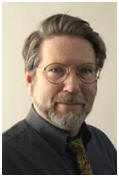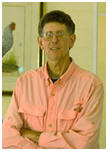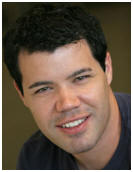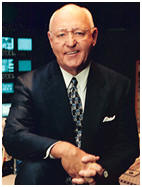Coffee House Panelist Biographies
Tuesday, August 2,
3:30-5:00 pm
Can
Chesapeake Bay Restoration Be Accomplished?
 Jeff
Corbin is the new senior adviser for the
Environmental Protection Agency�s effort to restore and
preserve the Chesapeake Bay. In his new position, Jeff will
help coordinate all aspects of the strategic Chesapeake Bay.
He will serve as the chief liaison among the Office of the
Administrator; federal, state and local government partners;
community and nonprofit stakeholders; and our colleagues
throughout the EPA. Before joining Region 3 in January 2010,
Jeff was appointed assistant secretary of natural resources
for the Commonwealth of Virginia by then-Governor Tim Kaine.
Earlier, he spent almost a decade with the Chesapeake Bay
Foundation, ultimately serving as its Virginia deputy
director and senior scientist. Jeff also worked as an
environmental geologist and water quality specialist for the
Texas Natural Resource Conservation Commission during the
early 1990s. He has a B.A. in Marine Science from the
University of South Carolina, and a M.S. in Oceanography
from the University of Rhode Island. Jeff is a Coast
Guard-licensed small vessel captain and a certified scuba
diver with 30 years of experience. Jeff
Corbin is the new senior adviser for the
Environmental Protection Agency�s effort to restore and
preserve the Chesapeake Bay. In his new position, Jeff will
help coordinate all aspects of the strategic Chesapeake Bay.
He will serve as the chief liaison among the Office of the
Administrator; federal, state and local government partners;
community and nonprofit stakeholders; and our colleagues
throughout the EPA. Before joining Region 3 in January 2010,
Jeff was appointed assistant secretary of natural resources
for the Commonwealth of Virginia by then-Governor Tim Kaine.
Earlier, he spent almost a decade with the Chesapeake Bay
Foundation, ultimately serving as its Virginia deputy
director and senior scientist. Jeff also worked as an
environmental geologist and water quality specialist for the
Texas Natural Resource Conservation Commission during the
early 1990s. He has a B.A. in Marine Science from the
University of South Carolina, and a M.S. in Oceanography
from the University of Rhode Island. Jeff is a Coast
Guard-licensed small vessel captain and a certified scuba
diver with 30 years of experience.
 Will
Baker has dedicated his entire career to saving
Chesapeake Bay, and leading the largest non-profit
conservation organization dedicated solely to it. Will
Baker has dedicated his entire career to saving
Chesapeake Bay, and leading the largest non-profit
conservation organization dedicated solely to it.
After graduation from Trinity College in 1976, Baker came
to work for the Chesapeake Bay Foundation as an intern at
the request of one of CBF's trustees. Mr. Baker became the
President and Chief Executive Officer of CBF in 1982.
CBF has a $22 million annual operating budget and is
supported by 200,000 members from every state in the Union
and 14 foreign countries. CBF is staffed by 160 full-time
employees who operate out of state offices in Maryland,
Pennsylvania, Virginia and Washington, DC as well as 16
separate environmental education centers. CBF's education
centers engage approximately 40,000 students and teachers in
hands-on field experiences annually.
In recognition of CBF�s environmental education program,
the organization received the 1992 Presidential Medal for
Environmental Excellence, which is the nation's highest
environmental honor.
 Ann
Pesiri Swanson is known regionally, nationally and
internationally as a conservation leader. Ann
Pesiri Swanson is known regionally, nationally and
internationally as a conservation leader.
Ann serves as Executive Director of the Chesapeake Bay
Commission, a tri-state legislative advisory authority
composed of legislators, cabinet secretaries and citizens
from Maryland, Virginia and Pennsylvania. The Commission is
a signatory to the Chesapeake Bay agreements and coordinates
Bay restoration activities among the state legislatures and
the U.S. Congress. Ann has been a leader in the region for
more than twenty years. There is hardly a piece of
conservation legislation in the tri-state region that does
not have Ann�s mark on it.
Ann has been recognized as the University of Vermont
Outstanding Alumni of the Year in 1989, received the
Chesapeake Executive Council Salute to Excellence Award in
1992 and again in 1999, the Chesapeake Bay Foundation�s 2001
Conservationist of the Year, and most recently, the Sierra
Club�s Award for Outstanding Achievement in 2004.
Ann has an undergraduate degree in Wildlife Biology from
the University of Vermont and a graduate degree in
Environmental Science from Yale University, where she
graduated with high honors. Ann has chaired the Board of the
University of Vermont�s School of Natural Resources Advisory
Council for the past 11 years.
She has illustrated several published books on natural
history, and is an avid gardener, naturalist, kayaker and
crafts artist. She is married and has two boys, ages 16 and
18.
 Dr.
Robert M. Summers was appointed Secretary of the
Maryland Department of the Environment by Governor Martin
O�Malley on April 28, 2011. Summers leads the Department�s
planning, regulatory, management, and financing programs to
protect public health, ensure a safe and reliable water
supply, restore and protect air quality, water quality,
wetlands and waterways, clean up contaminated land and
ensure proper management of hazardous and solid wastes.
Throughout his career, Summers has been a key contributor to
the Chesapeake Bay restoration effort. He has served the
citizens of Maryland for 27 years in various capacities
within Maryland�s progressive and nationally recognized
environmental programs. Dr.
Robert M. Summers was appointed Secretary of the
Maryland Department of the Environment by Governor Martin
O�Malley on April 28, 2011. Summers leads the Department�s
planning, regulatory, management, and financing programs to
protect public health, ensure a safe and reliable water
supply, restore and protect air quality, water quality,
wetlands and waterways, clean up contaminated land and
ensure proper management of hazardous and solid wastes.
Throughout his career, Summers has been a key contributor to
the Chesapeake Bay restoration effort. He has served the
citizens of Maryland for 27 years in various capacities
within Maryland�s progressive and nationally recognized
environmental programs.
Summers received his B.A. and Ph.D. in Environmental
Engineering from the Johns Hopkins University. Prior to
joining Maryland�s environmental programs, he worked as a
research assistant at the Johns Hopkins University�s
Chesapeake Bay Institute and as a post-doctoral research
associate at the State University of New York, Marine
Sciences Research Center in Stony Brook, NY.
 Tim
Wheeler is a reporter covering the Chesapeake Bay and
other environmental issues in Maryland and beyond. He is
Chief contributor to B'more Green blog. He covers air
pollution, algae, endangered species, fisheries, forests,
greenhouse gases, green building, solar, wind, and water. Tim
Wheeler is a reporter covering the Chesapeake Bay and
other environmental issues in Maryland and beyond. He is
Chief contributor to B'more Green blog. He covers air
pollution, algae, endangered species, fisheries, forests,
greenhouse gases, green building, solar, wind, and water.
Wheeler is a former president of the Society of
Environmental Journalists, and a current board member. He
has a B.A. in Economics from the University of Virginia and
a M.S. in Journalism from Columbia University.
In his 25 years at The Baltimore Sun, he's also covered
growth and development, state and local government, and
higher education. Before joining the Sun, he worked for a
regional news service in Washingon, D.C., and newspapers in
Norfolk and Richmond, Va.
Thursday, August 4, 3:30-5:00 pm
Effective
Communication of the Ecosystem Restoration Challenge
 David
Fahrenthold is a Houston native who graduated from Harvard University in 2000. A reporter for the Washington Post, he covered regional environmental issues, including the Chesapeake Bay restoration, for several years. He wrote several front page stories on the accuracy of assessment of progress by the Chesapeake Bay Program. His coverage then expanded to include national and international environmental issues, including global climate change, mountaintop mining, and last year�s BP Deepwater Horizon oil spill. In December, 2010, the Post �elevated� him to become a principal correspondent for coverage of Congress. David
Fahrenthold is a Houston native who graduated from Harvard University in 2000. A reporter for the Washington Post, he covered regional environmental issues, including the Chesapeake Bay restoration, for several years. He wrote several front page stories on the accuracy of assessment of progress by the Chesapeake Bay Program. His coverage then expanded to include national and international environmental issues, including global climate change, mountaintop mining, and last year�s BP Deepwater Horizon oil spill. In December, 2010, the Post �elevated� him to become a principal correspondent for coverage of Congress.
 Tom
Horton worked for five years as an educator at the
Chesapeake Bay Foundation, where he wrote Turning the Tide,
a book on solutions to the Chesapeake�s water quality
problems. Tom
Horton worked for five years as an educator at the
Chesapeake Bay Foundation, where he wrote Turning the Tide,
a book on solutions to the Chesapeake�s water quality
problems.
Horton covered environmental issues for the Baltimore Sun
from 1974 until 2006. He is author of several books about
Chesapeake Bay and has written for magazines including
National Geographic, Rolling Stone, The New York Times, and
the Boston Globe.
He teaches writing and environmental studies at Salisbury
University, and contributes regularly to Chesapeake Bay
Magazine and the Bay Journal News Service. He is currently
writing a book on chickens for WW Norton publishers.
He recently paddled his kayak 550 miles around the
Delmarva Peninsula and is planning to ride his bike across
the U.S. in 2008.
 Christopher
Joyce is a correspondent on the science desk at National
Public Radio. His stories can be heard on all of NPR's news
programs, including NPR's Morning Edition, All Things
Considered, and Weekend Edition. Christopher
Joyce is a correspondent on the science desk at National
Public Radio. His stories can be heard on all of NPR's news
programs, including NPR's Morning Edition, All Things
Considered, and Weekend Edition.
Joyce seeks out stories in some of the world's most
inaccessible places. He has reported from remote villages in
the Amazon and Central American rainforests, Tibetan
outposts in the mountains of western China, and the bottom
of an abandoned copper mine in Michigan's Upper Peninsula.
Joyce came to NPR in 1993 as a part-time editor while
finishing a book about tropical rainforests. For two years,
Joyce worked on NPR's national desk and was responsible for
NPR's Western coverage.
Joyce's stories on forensic investigations into the
massacres in Kosovo and Bosnia were part of NPR's war
coverage that won a 1999 Overseas Press Club award. He was
also part of the Radio Expeditions reporting and editing
team that won the 2001 Alfred I. duPont-Columbia University
journalism award and the 2001 Sigma Delta Chi award from the
Society of Professional Journalists. Joyce also won the 2001
American Association for the Advancement of Science
excellence in journalism award.
 Chris
Mooney is a free lance writer who focuses on science and
politics. Mooney is host of the Point of Inquiry podcast and
the author of three books, The Republican War on Science,
Storm World, and his most recent publication, Unscientific
America. He also writes a science blog called "The
Intersection" which was a recipient of Scientific American's
2005 Science and Technology web award. He was recently seen
on MSNBC's "The Last Word" discussing "The Science of Why We
Don't Believe Science," and recently wrote for The American
Prospect magazine about how the reality-based community is
moving to the left. Chris
Mooney is a free lance writer who focuses on science and
politics. Mooney is host of the Point of Inquiry podcast and
the author of three books, The Republican War on Science,
Storm World, and his most recent publication, Unscientific
America. He also writes a science blog called "The
Intersection" which was a recipient of Scientific American's
2005 Science and Technology web award. He was recently seen
on MSNBC's "The Last Word" discussing "The Science of Why We
Don't Believe Science," and recently wrote for The American
Prospect magazine about how the reality-based community is
moving to the left.
Chris has been featured regularly by the national media.
He has appeared on The Daily Show with Jon Stewart, The
Colbert Report, MSNBC�s �Morning Joe,� CSPAN�s Book TV, and
NPR�s Fresh Air With Terry Gross and Science Friday.
Mooney�s book The Republican War on Science was named a
finalist for the 2005 Los Angeles Times book prize in the
category of "Science and Technology." His 2005 feature story
about ExxonMobil, conservative think tanks, and climate
change was nominated for a National Magazine Award in the
"public interest" category.
Mooney graduated from Yale University in 1999. Before
becoming a freelance writer, Chris worked for two years at
The American Prospect as a writer, staff writer, then online
editor.
 Terence
Smith is an award-winning journalist who has been a
political reporter, foreign correspondent, editor and
television analyst over the course of a 40-year career. He
has written on everything from a Bedouin wedding in the
Sinai to firefights in the jungles of Vietnam. Terence
Smith is an award-winning journalist who has been a
political reporter, foreign correspondent, editor and
television analyst over the course of a 40-year career. He
has written on everything from a Bedouin wedding in the
Sinai to firefights in the jungles of Vietnam.
Smith began his career covering local politics at the
Stamford (CT) Advocate. He spent 20 years with The New York
Times, including eight years abroad in the Middle East and
Far East, covering four wars, peace negotiations and the
day-to-day lives of people in more than 40 countries.
Smith�s coverage earned two Pulitzer Prize nominations and
numerous other awards. He won the Times� Publisher�s Prize
for outstanding writing 22 times
In 1985, Smith joined CBS News in Washington, covering
the Reagan White House and for nine years, reporting the
cover stories for CBS Sunday Morning. He earned two Emmys
for his work on the broadcast �48 Hours.�
In 1998, Smith turned to public television, founding and
leading the media unit at The NewsHour with Jim Lehrer. In
the course of seven years, Smith and his unit won 18
national awards and honors for media criticism and analysis.
In the fall of 2005, the media unit grant ended, and Smith
opted to become a freelance writer and essayist for a number
of news organizations.
Smith is a frequent guest host for The Diane Rehm Show on
National Public Radio. He speaks, writes, and broadcasts on
national politics, international affairs, and environmental
issues involving the Chesapeake Bay and ocean policies.
For more information on Terence Smith, visit his website.
http://terencefsmith.com/ |